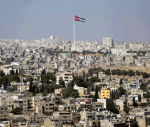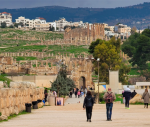You are here
Strengthening health systems in the Eastern Mediterranean
Oct 26,2024 - Last updated at Oct 26,2024
The Eastern Mediterranean Region (EMR) has long been a stage for conflict, instability and now, the pressing threats of climate change. Health systems in this region, already strained by exacerbated crises, face unprecedented challenges that require urgent attention and collaborative efforts. To address these, we must examine the profound effects of conflict, explore regional collaboration and redefine our approach to resilience in the face of growing vulnerabilities.
Conflicts across the EMR have led to the destruction of healthcare infrastructure, displacement of populations and severe shortages of healthcare workers and supplies. Countries like Afghanistan, Syria, Yemen, Iraq, Libya, Sudan, Somalia, Palestine (Gaza and West Bank), Lebanon and Pakistan are either experiencing or have recently experienced conflict or unrest. These conflicts resulted in loss of lives, economic collapse, social disruption, non-functional health facilities and a negative impact on future development. The consequences are devastating, as disease outbreaks like cholera and polio resurge, and healthcare workers face increasingly dangerous conditions. The persistence of these crises highlights the critical need for international humanitarian laws to protect healthcare systems and their workers in conflict zones.
The lessons learned from these ongoing conflicts emphasise the need for robust, long-term investments in rebuilding health systems post-conflict. Reconstructing physical infrastructure is just the start. Sustainable recovery demands investment in human resources and supply chains, coupled with a commitment to addressing the root causes of these conflicts. Only then can we hope to see a stable recovery that enables health systems to serve their populations effectively.
Amid these challenges, the role of regional collaboration becomes vital. Countries within the EMR must engage in ongoing dialogue to share best practices, jointly mobilise resources, and develop coordinated policies. For example, cross-border health initiatives can enhance surveillance for disease outbreaks that do not respect borders, such as vector-borne diseases exacerbated by climate change. Collaborative frameworks will help align national health strategies with global goals like those outlined in the Paris Agreement and the Sendai Framework.
Looking forward, it is time to shift from reactive measures to proactive strategies that strengthen resilience in our health systems. This requires integrating climate change into health policies, investing in resilient infrastructure, and ensuring access to clean water and sanitation—key components in reducing vulnerabilities in conflict-affected areas. Furthermore, enhancing disease surveillance systems is essential for early detection of climate-sensitive diseases, which pose significant risks to already vulnerable populations.
Research also plays a pivotal role in advancing health system resilience. Priorities should focus on assessing the specific health impacts of climate change, evaluating health system vulnerabilities and exploring the effectiveness of interventions in conflict zones. Investments in innovative infrastructure projects and disease surveillance will support sustainable health system resilience.
In conclusion, the road to building resilient health systems in the Eastern Mediterranean will require clear, collective action at national, regional and global levels. With sustained regional collaboration, we can strengthen health systems amidst conflict and climate change. It is time to move from reaction to action, ensuring that health systems in this region can withstand the challenges of the future.













Add new comment